178-unit affordable housing complex breaks ground in Kahului, prioritizing wildfire survivors

A vacant lot on South Puʻunēnē Avenue will soon become a hub for families in need, as Hale Pilina, a 178-unit affordable housing project, broke ground Friday in Kahului.
The complex will prioritize families displaced by the August 2023 wildfires, offering stability to a community hit hard by both the disaster and Maui’s ongoing housing crisis.
“Twenty-five months from now, this vacant parcel is going to be home to 178 lucky families,” said Denise Iseri-Matsubara, executive director of Catholic Charities Housing Development Corporation, at Tuesday’s groundbreaking ceremony. “Right here on South Puʻunēnē, directly across from the post office, next door to the district pool, a couple blocks from the bus depot and close to two shopping centers—this is a perfect place to raise a family.”
The site spans about 4.8 acres that have never been developed beyond use as a public park and overflow parking for the Maui County Fairgrounds and Racing Association across the street. It was also once home to the Maui Swap Meet before it moved to the University of Hawai‘i Maui College campus.
The $150 million development will feature four residential buildings with a central green space and playground. The name “Hale Pilina” reflects the ties that bind families and neighbors together, “pilina” meaning relationship or connection in Hawaiian language.
Initially planned for 89 units, the project was expanded to 178 apartments. When finished, Hale Pilina will include four buildings with a mix of one- and two-bedroom apartments. The bulk of units will be set aside for families earning up to 60% of the Area Median Income (AMI).
Specifically, the complex will include 18 units at 30% AMI, 18 units at 50% AMI, 142 units at 60% AMI and one manager’s unit. As it stands today, the cheapest one-bedrooms would be a projected $547 per month, while the cheapest two-bedrooms would rent for $630 per month. The bulk of the units would rent for between $1,249 and $1,472 per month.
At the groundbreaking, Bishop Larry Silva of the Diocese of Honolulu offered a blessing, while speakers from Catholic Charities, the Hawai‘i Housing Finance and Development Corporation and the mayor’s office spoke on the milestone.
“Pilina is about connection, community, togetherness—and we’re feeling that today,” said Mahina Martin, public affairs director for Maui Mayor Richard Bissen. “When we stand here on the day the doors will open, we are standing with our own people, opening the door for them to have a life, a sheltered life, and a time of peace for those who need stability.”
Funding for the $115 million project comes from a patchwork of sources, including tax-exempt bonds, state and federal tax credits, $32.6 million from the State of Hawaii Rental Housing Revolving Fund, a $10.7 million grant with no repayment terms from Maui County’s Affordable Housing Fund and $1.3 million from the County of Maui HOME Fund. Catholic Charities secured private investment through syndication by Raymond James, with tax credit investors including JP Morgan, American Savings Bank and Central Pacific Bank.
The affordability period is set for 66 years, per Resolution No. 210 approved by the Hawai‘i Housing Finance and Development Corporation (HHFDC) on April 10, 2025.
The affordable housing injection is only a small part of what Maui needs, but it is a significant milestone, almost two years after Gov. Green issued his first emergency proclamation relating to housing in July 2023.
Representing Gov. Green at Hale Pillina’s blessing and groundbreaking was Dean Minakami, the executive director of HHFDC, the state agency that oversees the developing and financing of affordable housing projects.

According to Minakami, an estimated 64,000 units are needed statewide—including 15,000 in Maui County, even before accounting for homes lost in the 2023 wildfires. Maui needs nearly 25% more housing than it currently has, with short-term rentals and timeshares making up about a quarter of the island’s housing stock already as the county waits to vote on a short-term rental ban.
Despite a record 35 applications for affordable housing projects this year, Minakami said only a few have secured funding so far. From a decision-making perspective, he said Hale Pilina was successful due to the “developer’s track record” and because of Catholic Charities’ reputation as a “model nonprofit with the desire, the acumen and resources” to create affordable housing.
Hale Pilina will be Catholic Charities Hawai‘i’s first-ever housing project dedicated for families, as all of its nearly 500 units in the state have been for kupuna.
Construction is expected to wrap up in mid-2027, with families moving in by the end of that year. For the first two years, low-income families affected by the wildfires will get priority in securing units.
The project’s architect is Design Partners Incorporated, with Maryl Group Construction serving as the general contractor.
“Developing housing is hard work—no joke,” said Tina Andrade, president and CEO of Catholic Charities Hawaii and Catholic Charities Housing Development. “If you look at it, there are so many disappointments along way, so many roadblocks. But at the end, when the team all works together to make it happen, it’s golden.”






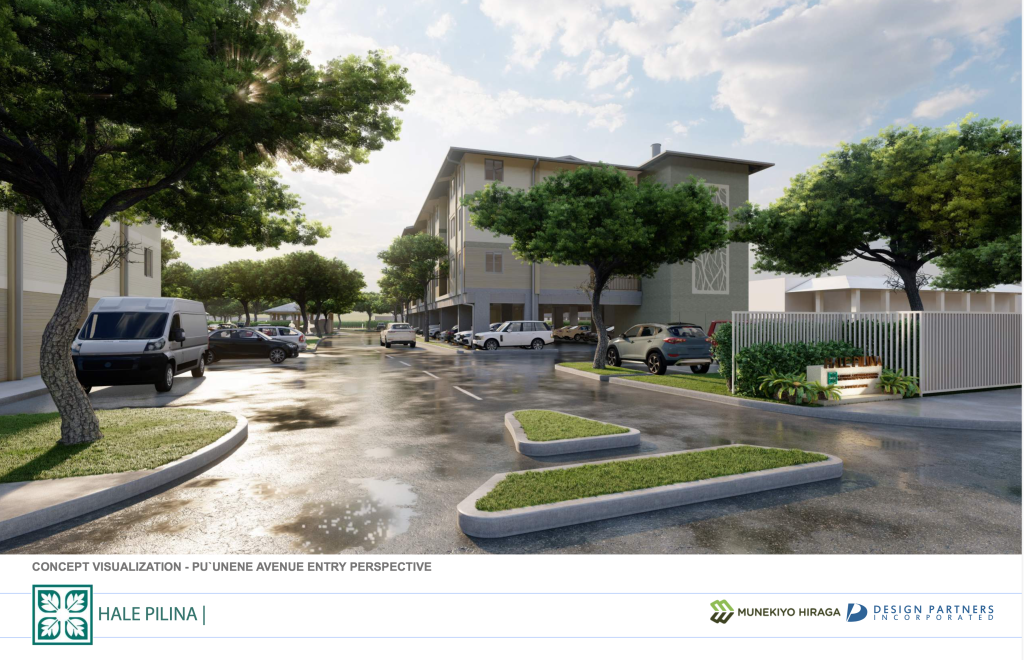
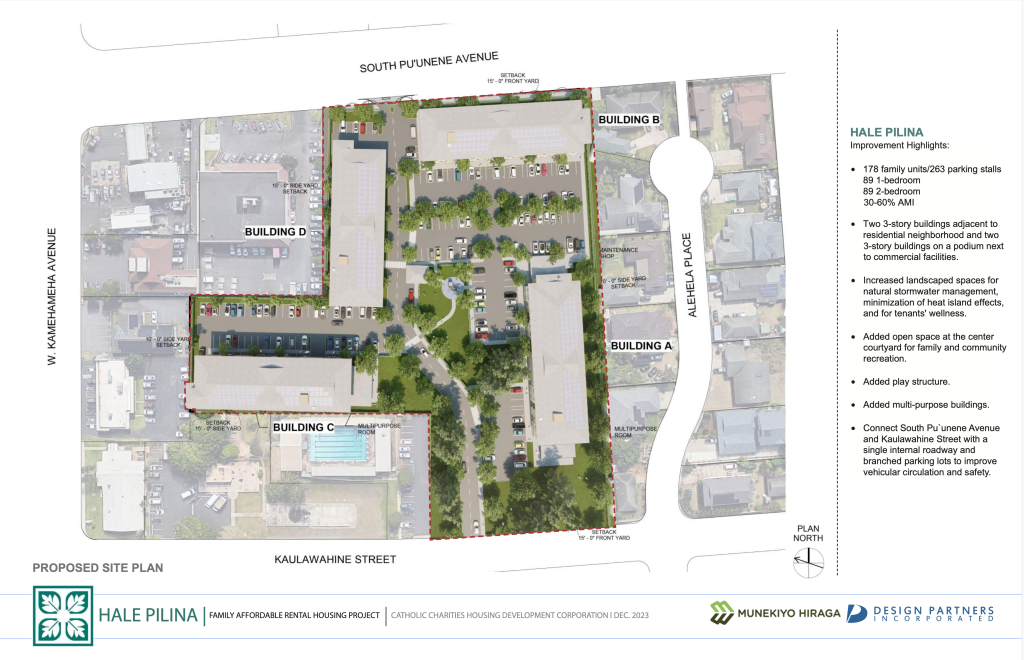
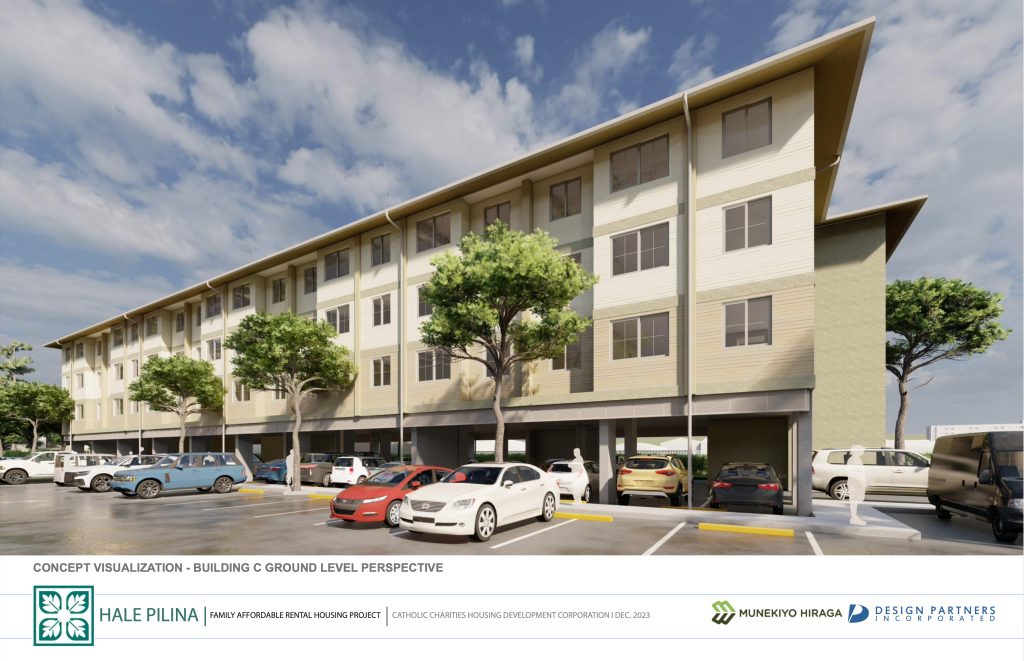







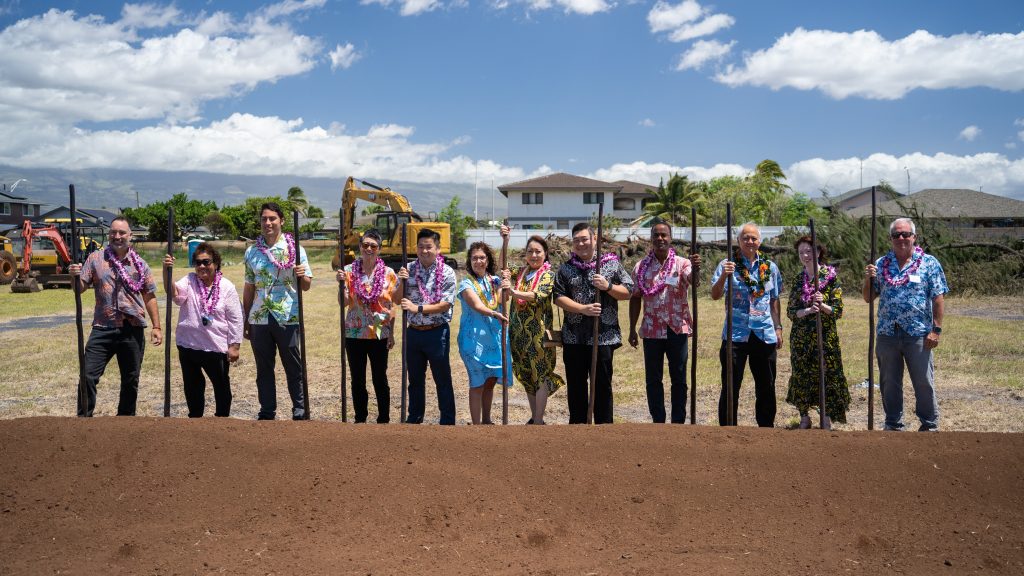
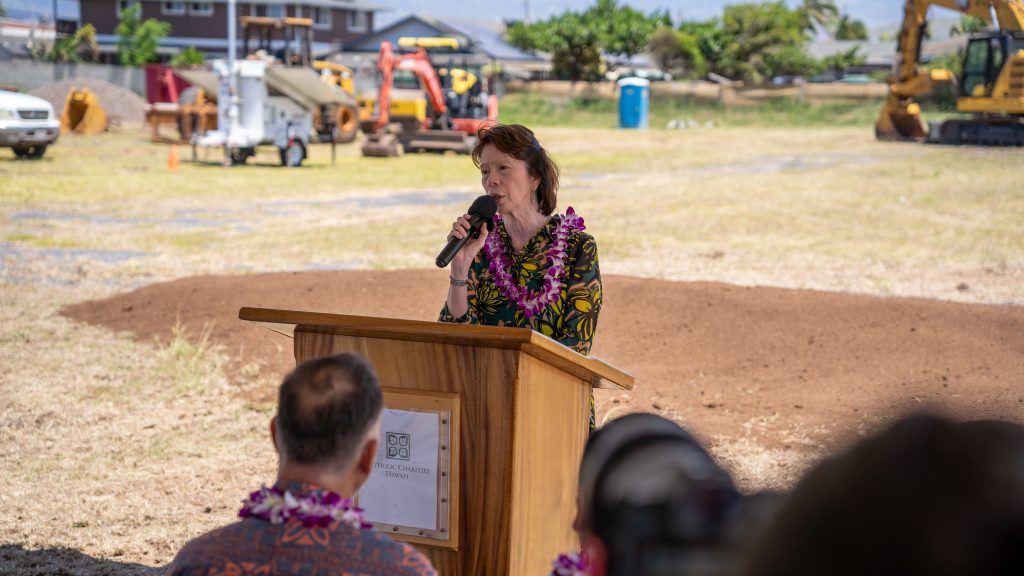
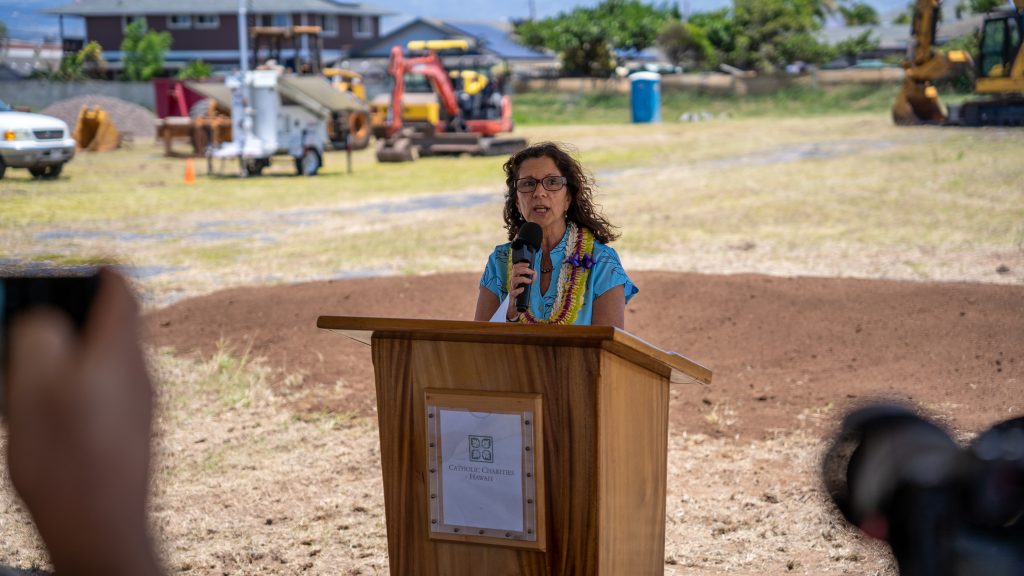






_1768613517521.webp)


